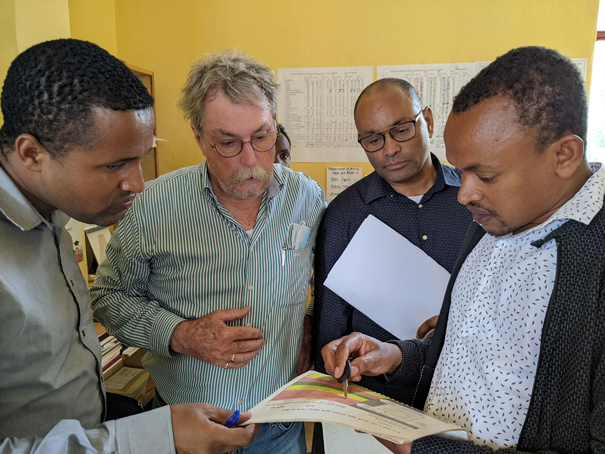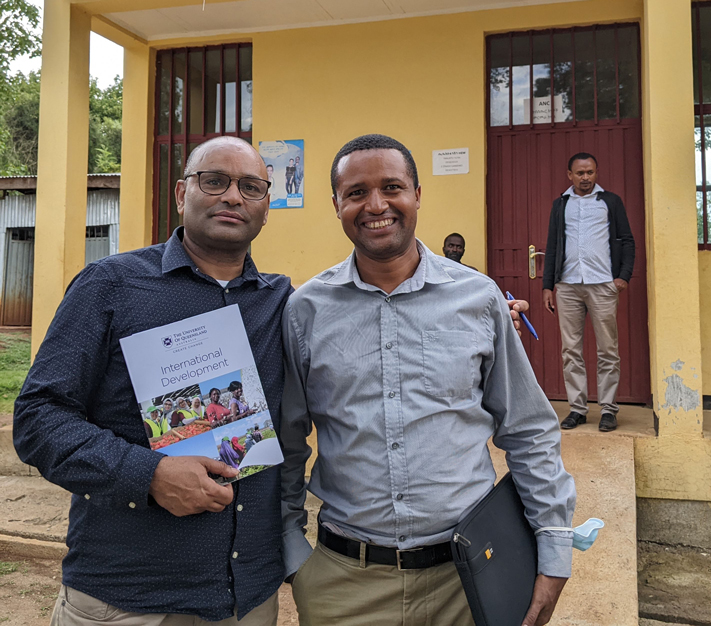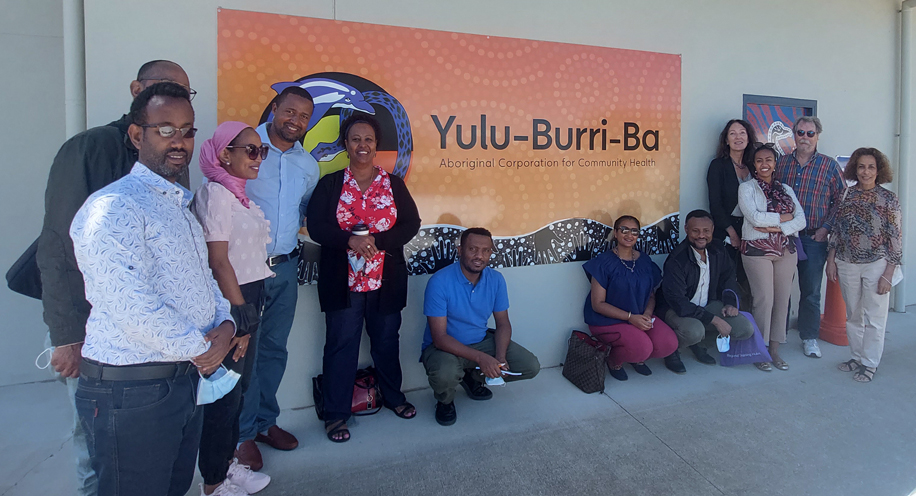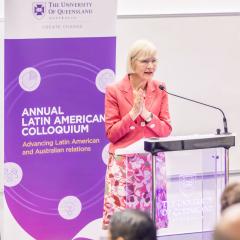UQ International Development partnered with the School of Public Health, the American International Health Alliance (AIHA), and the Bill & Melinda Gates Foundation to deliver an exciting new project in Ethiopia.
The project aimed to strengthen Ethiopia's primary health sector by building the capacity of the International Institute of Primary Health Care-Ethiopia, a crucial step towards achieving universal health coverage (UHC) and improving health outcomes in the region.
The Gates Foundation funded this capacity-building project as a twinning partnership – meaning the American International Health Alliance (AIHA) supported the exchange of knowledge, skills, capacity and expertise between UQ and the Institute to develop programs that fit within the local health systems to meet local needs.
Ethiopia, the 10th most populous country with 135.5 million people, faces critical maternal and child health challenges. Infant mortality is nearly twice the global average, and communicable diseases like HIV / AIDS, TB, malaria, and respiratory infections remain widespread. Despite a growing middle class, the country struggles with poor quality of life, malnutrition, and a rising burden of non-communicable diseases such as cancer, diabetes, and heart disease.
The twinning partnership has significant achievements, including developing 28 training manuals on topics like Primary Health Care (PHC) principles, systems, advocacy, monitoring and evaluation, operational research, policy analysis, pandemic preparedness, and climate resilience. These manuals have become invaluable resources, enabling the Institute to provide high-quality training to its staff and regional hubs.
Participants of the Training of Trainers program in regional Ethiopia used the manual to deliver cascade trainings to PHC implementers in regions and districts.

As the partnership concluded in November 2024, the groundwork laid during the project has set the stage for the Institute to achieve its goal of becoming a WHO Collaboration Centre. This designation will elevate its influence globally, enabling it to play a crucial role in shaping PHC policy and practice both nationally and internationally.
The success of this partnership can be attributed to the leadership and vision of Dr Yibeltal Alemu, an Associate Professor of Global Health Systems at UQ's School of Public Health.

Before joining UQ in 2016, he served as the Executive Director of the International Institute of Primary Health Care-Ethiopia, where he played a pivotal role in establishing it, developing its plan and organisational structure, and recruiting its staff.
His deep understanding of the Ethiopian health system and his commitment to capacity building have been instrumental in the success of the twinning partnership.
"Ethiopia is grappling with a critical shortage of skilled healthcare workers and insufficient resources for health extension workers — factors that significantly hinder service delivery," said Dr Alemu.
"These challenges, compounded by systemic issues in health financing and governance, continue to deepen inequities and stall progress.
"It is vital to address these challenges to create a more resilient and equitable primary health care system that supports universal health coverage and health security."
The project also facilitated international exposure for Ethiopian healthcare professionals through study visits to countries such as Thailand, Cambodia, Australia, Belgium, South Africa, and Vietnam. These visits provided firsthand insights into global best practices in PHC policy, community engagement, and integrated service delivery.

International Institute of Primary Health Care-Ethiopia, AIHA and PHC hubs from Ethiopia visiting a Minjerribah Stradbroke Island Medical Centre. Aligned with AHIA's twinning model, the project emphasised experiential learning and peer exchange — like this visit to an Australian community clinic — to share and adapt PHC best practices, strengthening Ethiopia’s capacity to train frontline workers and build sustainable health systems. Supplied.
The newly developed courses on pandemic preparedness and climate-resilient PHC are particularly noteworthy. These courses address some of the most pressing challenges facing Ethiopia's healthcare system, equipping healthcare workers with the skills needed to respond rapidly to infectious disease outbreaks and operate effectively under climate-related disruptions.
The COVID-19 pandemic strained Ethiopia’s fragile health system, disrupting essential services, while climate extremes have worsened disease spread, food insecurity, and water safety.
Ethiopia stands at a pivotal point where the converging threats of pandemics and climate change must be addressed through a PHC approach.
The UQ-International Institute of Primary Health Care-Ethiopia twinning partnership has demonstrated the power of international collaboration in strengthening health systems and advancing global health goals. By focusing on capacity building, knowledge exchange, and sustainable practices, the project has made significant strides in enhancing Ethiopia's PHC system. As Ethiopia continues its journey toward UHC, the lessons learned and the foundations laid by this partnership will serve as a beacon for future initiatives towards UHC and health security.



